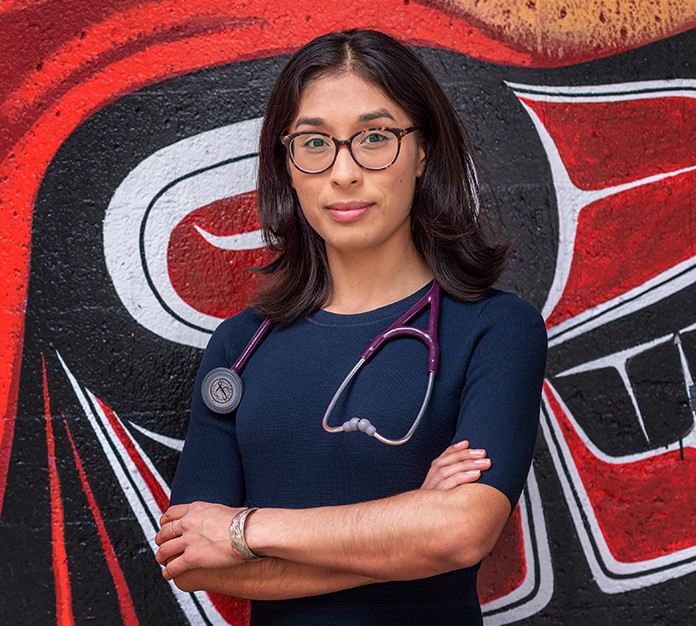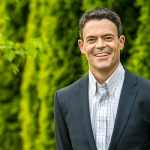BHK’09, MD’18

Rebekah is a proud First Nation alumnus of the School of Kinesiology (BHKIN 2009 in the Health Sciences stream) and of the UBC Faculty of Medicine. Kinesiology married her love for sports and her passion for health. She played competitive sports throughout her high school and undergraduate years, and had known since she was a child that she wanted to be a doctor. KIN was the perfect foundation for Rebekah to prepare her for med school and recalls her years in Kinesiology fondly, “I think Dr. Warburton’s courses in exercise physiology were my favourite!” Rebekah credits KIN’s smaller class sizes, as well as the team-based learning format in helping her easily adapt to her current work and learning environments in medicine. She comments that “the KIN program also had the flexibility that allowed me to pursue Medicine requirements.”
Rebekah is an Indigenous Family Physician serving both urban and rural Indigenous peoples. She is Tsimshian from Lax Kw’alaams, from the Raven Clan on her father’s side and Métis on her mother’s side. She works for Lu’ma Medical Centre in Vancouver, as well as Carrier Sekani Family Services in Northern BC, where she is proud to deliver culturally safe care to her patients. She is a recent graduate of the Indigenous Family Medicine program, where she was a successful resident in multiple leadership positions. She won the BCCFP Resident Leadership Award as well as the CCFP Indigenous Family Medicine Resident Award in 2020. She enjoys helping to implement TRC recommendations at a University level. At present she is an Indigenous Advisor at the Centre for Excellence in Indigenous Health at UBC, helping to expand cultural safety training and support at UBC.
While she was a Family Medicine Resident at UBC in the Vancouver Indigenous site she was part of a small distributed program, with strong ties to Indigenous communities. “I learned how our preceptors help to build strength at a community level by building up individuals. As a multitude of our patients have experienced trauma, building safe spaces in health care is of utmost importance,” she says.
Recognizing that Canada’s medical system historically participated in the oppression and marginalization of Indigenous peoples through exclusion, discrimination, and lack of Indigenous healthcare providers, Rebekah believes that she can contribute to reconciliation efforts in the health care system through various committee and volunteer work that aim to enact change at a structural level.
